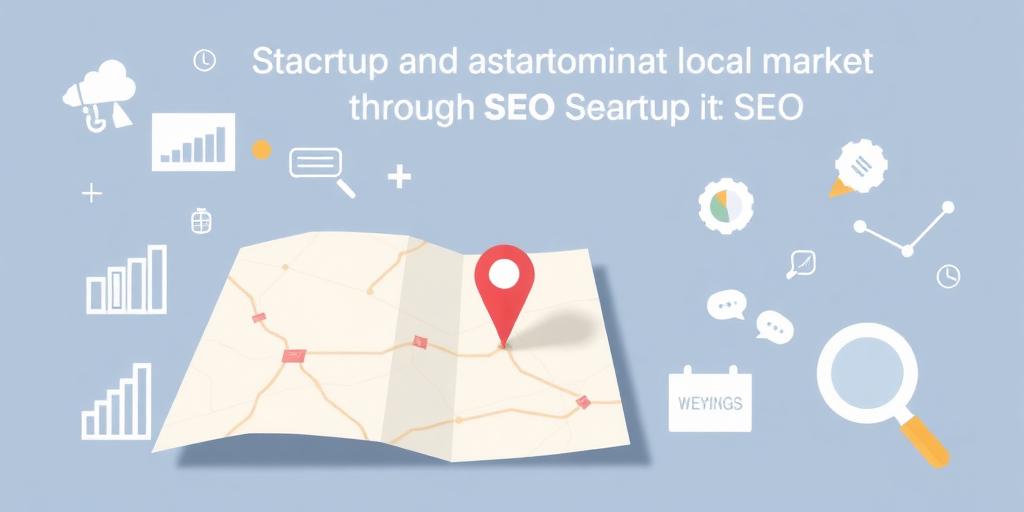Local SEO for Startups: Winning Your Geographic Niche
Starting a business is tough, and getting noticed can feel impossible, especially when competing with established giants. But here's a secret weapon: local SEO. It's all about optimizing your online presence to attract customers in your specific geographic area. For startups, mastering local SEO can be a game-changer, helping you build a loyal customer base and establish a strong foothold in your community.
Why Local SEO Matters for Startups
- Targeted Reach: Unlike broad marketing campaigns, local SEO focuses on customers actively searching for businesses like yours nearby. This means higher conversion rates and a better return on investment.
- Cost-Effective: Local SEO strategies, such as optimizing your Google Business Profile and building local citations, are often more affordable than traditional advertising methods.
- Competitive Advantage: Even if you can't outspend larger competitors, you can out-optimize them locally. By focusing on specific keywords and local search ranking factors, you can climb the ranks and capture local market share.
- Building Community: Local SEO isn't just about attracting customers; it's about becoming a valued member of your community. Engage with local events, sponsor local causes, and build relationships with other businesses to foster a strong local presence.
Essential Local SEO Strategies for Startups
1. Optimize Your Google Business Profile (GBP)
Your GBP is your digital storefront. Claim and verify your listing, then fill it out completely and accurately.
- Name, Address, Phone Number (NAP): Ensure consistency across all online platforms.
- Business Description: Craft a compelling description that highlights your unique selling points and target keywords.
- Categories: Choose the most relevant categories to describe your business.
- Photos: Upload high-quality photos of your business, products, and team.
- Reviews: Encourage customers to leave reviews and respond to them promptly (both positive and negative).
2. Keyword Research: Think Local
Identify the keywords your target customers are using when searching for businesses like yours in your area. Use keyword research tools to find local keyword variations and incorporate them into your website content, GBP, and other online profiles.
Example:
- Instead of "coffee shop," use "best coffee shop downtown [city name]"
- Instead of "hair salon," use "affordable hair salon near [neighborhood name]"
3. Build Local Citations
Local citations are online mentions of your business name, address, and phone number (NAP) on other websites. These citations help search engines verify your business's legitimacy and improve your local search ranking. Focus on building citations on reputable local directories, industry-specific websites, and local news sites.
Popular Citation Sources:
- Yelp
- Yellow Pages
- Foursquare
- Local Chamber of Commerce websites
4. Optimize Your Website for Local Search
Your website is the foundation of your online presence. Make sure it's optimized for local search by including location-specific keywords, creating location pages, and adding a map with your business location.
Key Website Optimization Tactics:
- Location Pages: Create separate pages for each location if you have multiple locations.
- Local Keywords: Weave local keywords naturally into your website content, including page titles, headings, and body text.
- Schema Markup: Implement schema markup to provide search engines with more information about your business, such as your address, phone number, and hours of operation.
- Mobile-Friendly: Ensure your website is mobile-friendly, as many local searches are conducted on mobile devices.
5. Encourage and Manage Online Reviews
Online reviews are crucial for building trust and attracting new customers. Encourage satisfied customers to leave reviews on your Google Business Profile, Yelp, and other relevant review sites. Respond to all reviews, both positive and negative, in a professional and timely manner.
6. Engage on Social Media (Locally)
Use social media to connect with your local community. Share local news, events, and promotions. Engage with local influencers and participate in local conversations. Social media can help you build brand awareness and drive traffic to your website and physical store.
7. Track Your Results and Adapt
Local SEO is an ongoing process. Track your rankings, website traffic, and customer inquiries to measure the effectiveness of your strategies. Use this data to identify what's working and what's not, and adjust your approach accordingly. Google Analytics and Google Search Console are invaluable tools for monitoring your local SEO performance.
Winning Your Geographic Niche
Local SEO is a marathon, not a sprint. By implementing these strategies consistently, you can build a strong online presence, attract local customers, and establish your startup as a leader in your geographic niche. Embrace the power of local and watch your business thrive.









